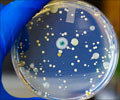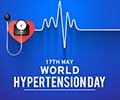- KD Tripathi. Essentials of Medical Pharmacology 6th edition
- Katzung. Basic and Clinical Pharmacology 12th edition
About
Antibiotics are among the most used and abused medications.
Antibiotics are medications directed against bacterial infection. These are drugs that are life-savers, yet extensively abused. This abuse leads to ineffectiveness of the drugs due to development of resistance by the bacteria. Below are some questions and answers regarding antibiotics that will help you to understand this class of drugs better.

What are antibiotics?
Antibiotics, as mentioned above, are drugs that act against bacteria. Antibiotics may either kill the bacteria, in which case they are said to be bactericidal, or may inhibit the growth of the bacteria, in which case they are called bacteriostatic. Antibiotics act at different sites of the bacteria like cell wall, cell membrane, DNA or inhibit protein synthesis.
Point to note: Antibiotics are usually ineffective against organisms other than bacteria, like viruses or fungi. A common mistake is taking antibiotics for viral fever, against which they have no effect. This practice should be strongly discouraged.
How does a physician select an antibiotic?
There are a number of antibiotics available today. Each of these antibiotics acts against a set of bacteria – this is known as the spectrum of the antibiotic.
The doctor may prescribe an antibiotic based on the most likely bacterium that may cause the infection. In some cases, the physician asks for laboratory tests that identify the bacteria and detect which antibiotic will work best against them. These are referred to as culture and sensitivity tests. Sometimes, the doctor may not wish to wait for the result of the test, especially if the patient is seriously ill. In such cases, the doctor takes a sample for testing, and starts an antibiotic that would most likely be effective against the infection or one that covers a large number of bacteria. He may change the antibiotic once the organism is identified.
Why should an antibiotic be taken for a particular number of days?
It is often recommended that an antibiotic should be taken for a particular number of days, like 7 days, 14 days etc. Your doctor will advise you not to stop the medication even if you are feeling well. This is because all the organisms that cause the infection should be dealt with by the antibiotic. If even some bacteria survive the antibiotic, they are likely to develop resistance to the antibiotic later.
Point to note: Always take the antibiotic in the prescribed dose and for the prescribed duration.
What is resistance to antibiotics? How can resistance be avoided?
Resistance is the inability of an antibiotic to deal with a bacterium. Some bacteria are naturally resistant to an antibiotic; that is, the antibiotic does not have any effect against them. Others develop resistance following exposure to the antibiotic in low doses or over shorter durations than necessary.
Resistance can be prevented through the following steps-
- Take the antibiotic for the dose and duration as prescribed by your doctor.
- Take the antibiotic that is advised by your doctor. Do not self-medicate.
- In some cases, your doctor will prescribe a combination of antibiotics to prevent resistance. Take the medications as advised.
What are the advantages of using a combination of antibiotics?
In some cases, doctors prescribe a pill that contains more than one antibiotic. A combination of antibiotics is used in some circumstances. Advantages of using more than one antibiotic to treat an infection are:
- The antibiotics may bring about a synergistic or additive effect in tackling with the bacteria
- They can treat infections caused by more than one type of bacteria
- The chances of developing resistance may be reduced
Which are the common situations where antibiotics are abused?
Antibiotics are sometimes used for the wrong reasons, and are often overused. Antibiotic abuse is a major problem today, resulting in resistance to the life-saving drugs. Common situations where antibiotics are abused are-
- Self-medication- The widespread and over-the-counter availability of antibiotics in some countries have resulted in several people taking antibiotics every time they fall sick with the hope of quick recovery. They fail to realize that this abuse of antibiotics could result in the drugs being ineffective when they are really needed.
- Wrong prescription- Unfortunately, many times, the medical fraternity makes its mistakes while prescribing antibiotics. Often, physicians try to prescribe the costliest and the latest antibiotics, when they are really not needed. Such practices only increase the costs for the patients, besides making the newer drugs ineffective even faster.
- Use of antibiotics in livestock- Antibiotics are often added to livestock to enhance growth and prevent infections. This use is highly controversial, since it could result in resistance, and may have health implications on humans feeding on the livestock.
The development of a new antibiotic takes time, and there are very few new antibiotics in the pipeline. It is therefore important to use whatever antibiotics we already have very carefully and ensure that we keep resistance at bay.
Can antibiotics be safely used in children?
Antibiotics are not completely safe medications. Like other drugs, they are associated with side effects. Some antibiotics are associated with side effects in children and should be avoided. For examples, tetracyclines stain teeth in children. A pediatrician can advise you on which antibiotics can be safely used in children.
Can antibiotics be safely used in pregnancy?
Some antibiotics like penicillins, some cephalosporins and erythromycin have been found to be safe in pregnancy. Some are associated with serious side effects on the fetus. It is therefore necessary to consult your doctor before taking an antibiotic during pregnancy, or any other drug for that matter.
Point to note: Do not self-medicate with antibiotics, especially if you are pregnant.
Which are the common situations where an antibiotic turns out to be ineffective in controlling an infection?
An antibiotic may be ineffective in controlling an infection in the following situations-
- The patient is prescribed an inappropriate antibiotic for the infection
- The dose and duration of treatment may be incorrect
- The treatment may have begun too late
- Other measures like draining an abscess may not have been considered
- The patient has very low immunity
- The infection is not a bacterial infection













